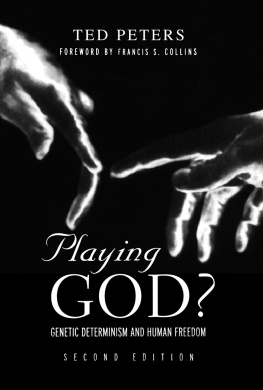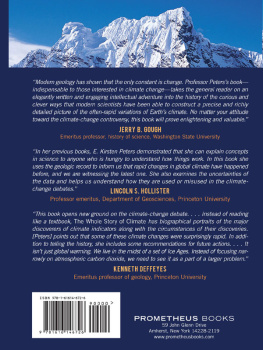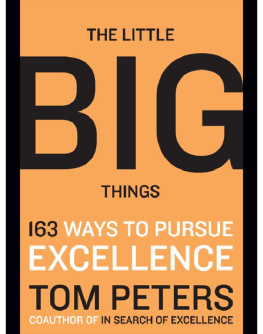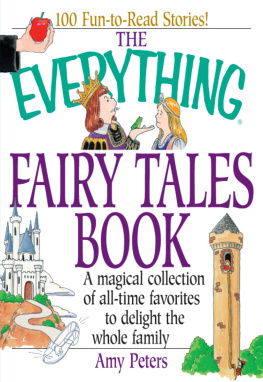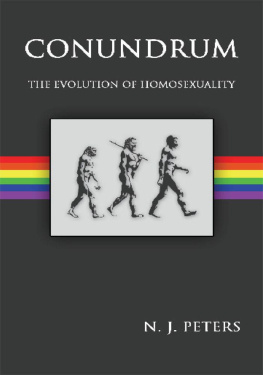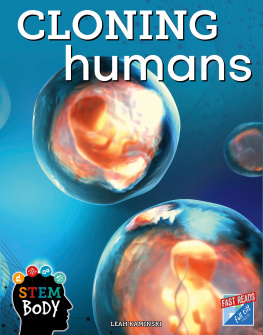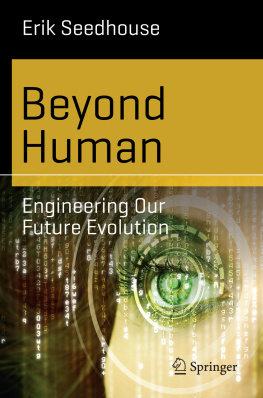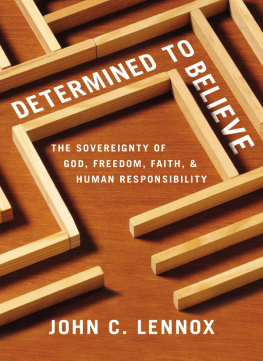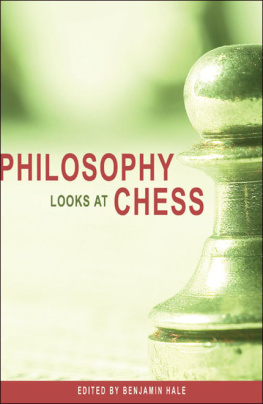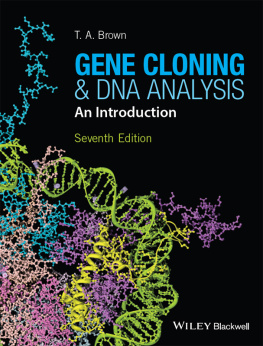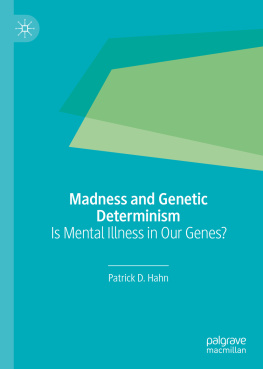
Praise for the First Edition of Playing God?
In this remarkable book, Ted Peters explores the fallacies of the gene myth and presents a resounding array of arguments against this kind of all-encompassing genetic determinism.
From the foreword by Francis S. Collins, Director, National Center for Human Genome Research
How to interpret the explosive increase in our knowledge of the human genome and whether or not to apply it to modifying that genome constitute critical dilemmas for humanity today. In this timely book, Ted Peters faces them squarely by analyzing particularly the role of the gene myth in popular science and that of original sin in traditional Christian belief. Neither emerges unchanged, or even unscathed, in a creative juxtaposition that the author, as a scientifically informed theologian, is uniquely qualified to elaborate.
Arthur Peacocke, Director of the Ian Ramsey Centre, Oxford University
The book is full of insightful ethical and theological deliberations. Highly recommended.
J. Noel Hubler, Religious Studies Review
Playing God? makes an important and thought-provoking contribution to the debate about genetics. Above all, it demonstrates that scientific facts are open to multiple theological interpretations. Creationism is only one end of the spectrum of relations between science and religion. Peters shows us the opposite end, a theology that embraces gene science.
New Scientist
Playing God? is clearly written, intelligible, and well-reasoned, and should appeal to anyone with an interest in the genetic issues confronting us.
Christian Library Journal
[The book] is a marvelous guide through what, for many of us, are uncharted waters the presentation of the issues surrounding this important topic are helpful and understandable.
Augsburg Fortress Newsletter
The raison detre of this fine book, as Peters clearly tells us throughout, is to reflect theologically on issues prompted by the gene myth with its maxim against playing God Peterss fine book provides a needed bridge between disciplines. It is now up to his colleagues in ethics to cross it.
CTNS Bulletin
Playing God? is a very careful, thoughtful, and graceful examination of many of the difficult issues on the genetically enhanced topic of freedom and determinism. While the scientific issues are fairly and cogently presented, more important is the illuminating theological and ethical discussion of the issues and their implications. Professor Peters has done us a major service by his careful framing of the issues and his analysis of their implications.
Thomas A. Shannon, Worcester Polytechnic
Playing God?
Genetic Determinism and Human Freedom
Second Edition
Ted Peters

First published in
2003 by Routledge
29 West 35th Street
New York, NY 10001
www.routledge-ny.com
Published in Great Britain by
Routledge
11 New Fetter Lane
London EC4P 4EE
This edition published 2012 by Routledge
Routledge
Taylor & Francis Group
711 Third Avenue
New York, NY 10017
Routledge
Taylor & Francis Group
2 Park Square, Milton Park
Abingdon, Oxon OX14 4RN
Copyright 2003 by Taylor & Francis Books, Inc.
All rights reserved. No part of this book may be reprinted or reproduced or utilized in any form or by any electronic, mechanical or other means, now known or hereafter invented, including photocopying and recording or in any information storage or retrieval system, without permission in writing from the publishers.
Cataloging-in-Publication Data is available from the Library of Congress.
ISBN 0-415-94248-90-415-94249-7 (pbk.)
Contents
Opportunity to pursue the background research for this book began with my work as principal investigator on a grant from the United States National Institutes of Health dealing with Theological and Ethical Questions Raised by the Human Genome Project. I am grateful to the Ethical, Legal, and Social Issues divison of the NIH for their support from 1991 to 1994.
My friends and colleagues at the Center for Theology and the Natural Sciences, which is an affiliate of the Graduate Theological Union in Berkeley, California, have provided me with a congenial and encouraging atmosphere. Whatever value my contributions to the growing field of Theology and Science might turn out to be is attributable to the vision and creativity and excitement of this research center.
Particular individuals have helped me in preparation of this manuscript by giving me critical feedback or encouragement or both. I would like to thank Susan Ashbourne, Patricia Codron, Greg Cootsona, Elizabeth Cushing, Lindon Eaves, Greg Hile, Carol Jacobson, David Peters, Erika Peters, Mark Richardson, Robert John Russell, and Lisa Stenmark, and especially Stan Lanier for indexing.
Following the publication of the first edition, I joined the nascent Ethics Advisory Board of the Geron Corporation. The Geron CEO, Thomas Okarma, has become my teacher about stem cells, so to speak. I am grateful to Tom and many other EAB colleaguesKaren Lebacqz, Laurie Zoloth, Al Jonsen, Ernie W. D. Young, and Michael Mendiolafor their lively and serious assessment of the bioethical and social justice consequences of genetic technology.
Two graduate students deserve special thanks for their aid in producing the second edition. Gaymon Bennett, who serves as research assistant to the Geron Ethics Advisory Board, provided indispensable background material on stem cells. Whitney Bauman assisted me in the preparation of the manuscript. It is a pleasure to work with these two colleagues.
Ted Peters
Berkeley, California
January 1, 2002
The two words playing God are powerful. In the past they were directed primarily at the activities of medical personnel involved in dramatic interventions or end-of-life decisions. Today these two words are increasingly finding their way into discussions of the consequences of genetic research. Interestingly, the person uttering these words will often not otherwise acknowledge the existence of a God who is concerned with human beingsbut the interjection of this phrase predictably results in elevated pulses and blood pressures, as the defenders of genetic research seek to justify its ultimate power to do good, while the critics seek to demonstrate how this approach crosses lines that the human species should not dare to traverse.
The mandate to alleviate human suffering is one of the most compelling of all expectations of humanity. Jesus Christ Himself spent a remarkable fraction of his brief time on earth healing the sick. When genetics is seen to fall into that larger mandate, it is hard to argue with its potential goodness. In fact, given that potential, it can be argued that the most unethical approach of all would be to insist that genetic research be stopped; because if it were, those individuals, present and future, who suffer from the ravages of genetic disease would be doomed to hopelessness. Given that virtually all diseases have a genetic component, and that we all carry predispositions to certain illnesses, the hope of a healthier future through genetic research is not restricted to a rare individual here and there; it applies to all of us.
Yet when genetics moves out of the realm of disease and into the study of human traits, especially when an intent to alter traits is implied or openly stated, the discomfort level appropriately rises, and questions about playing God are often raised. Perhaps if we could be confident that humans would play God as God doeswith infinite love and compassionthe concern would be lessened. The fear expressed in the phrase play God, however, is that humans might play God in their own selfish and imperfect ways.
Next page
